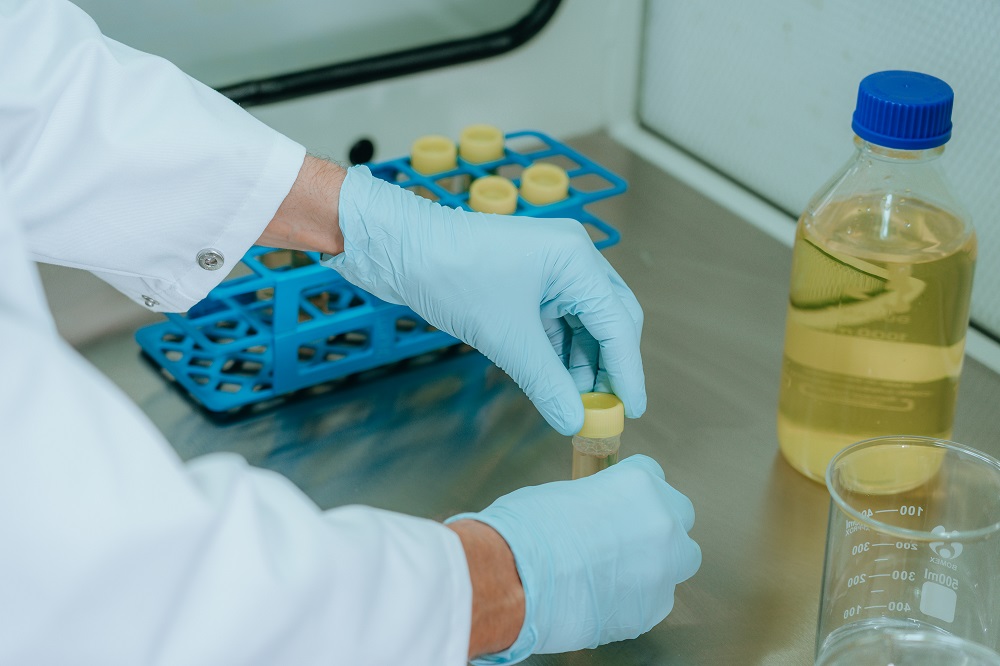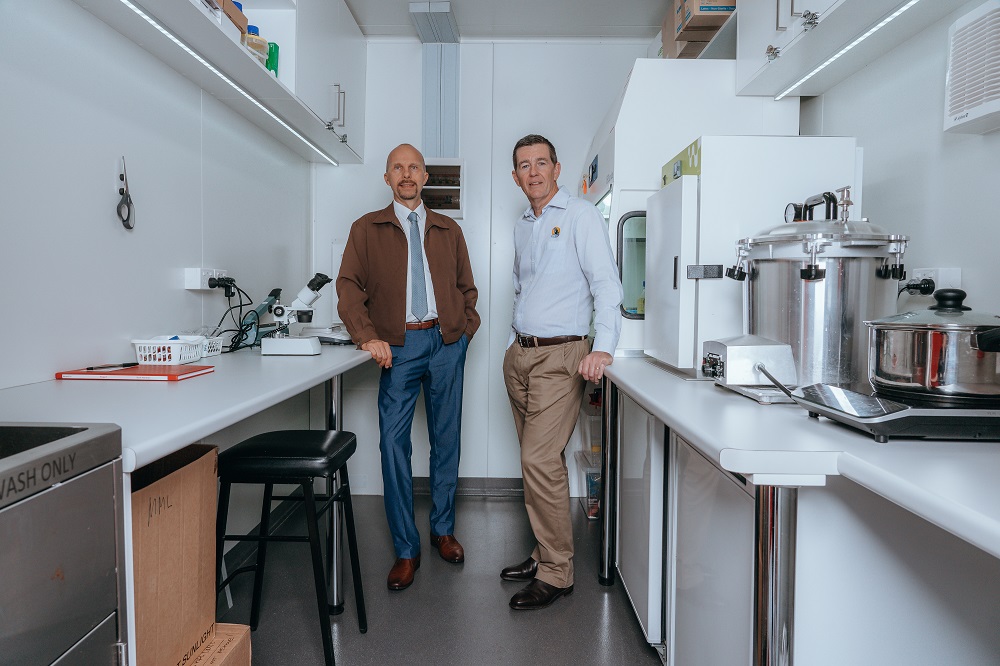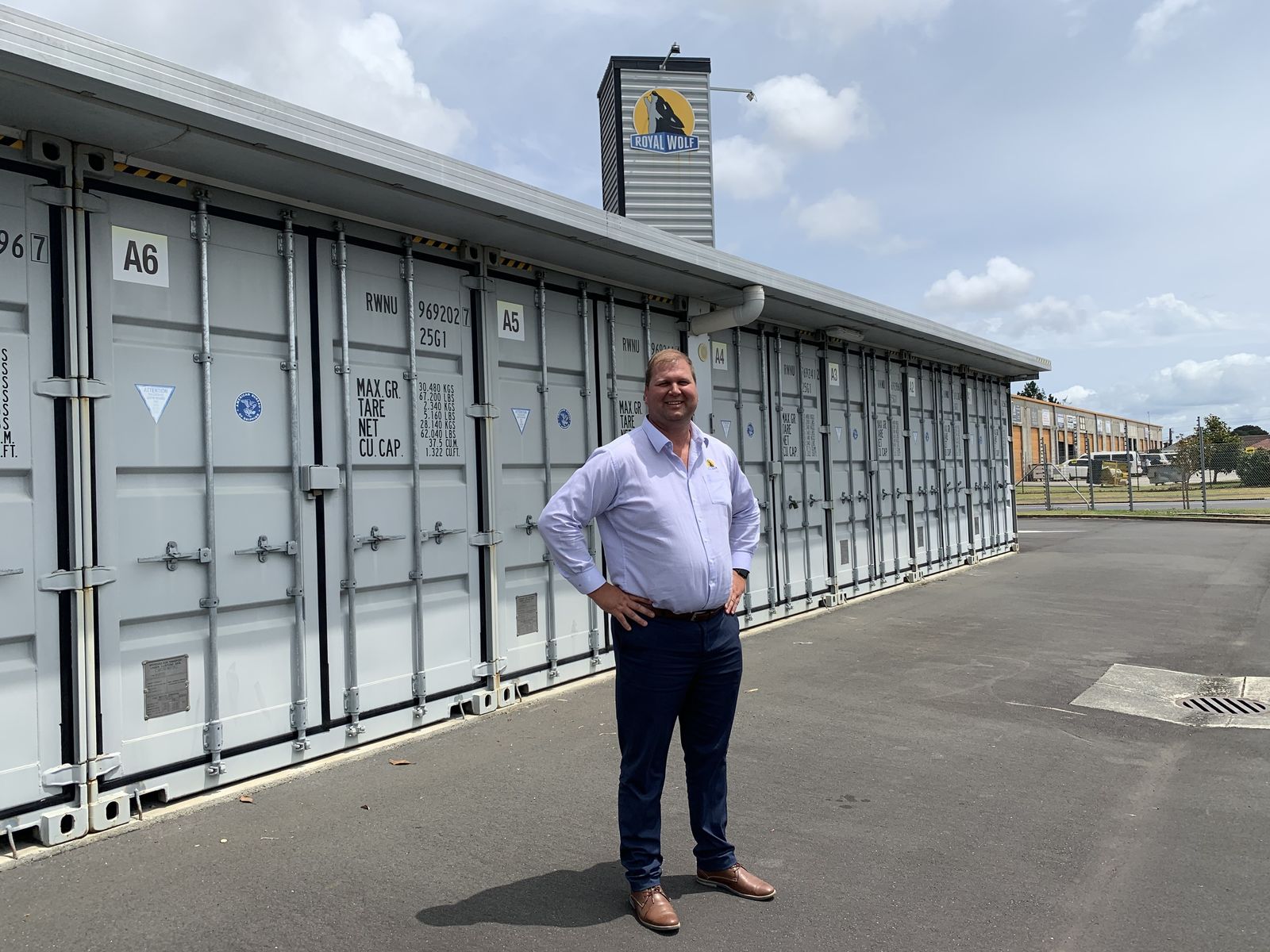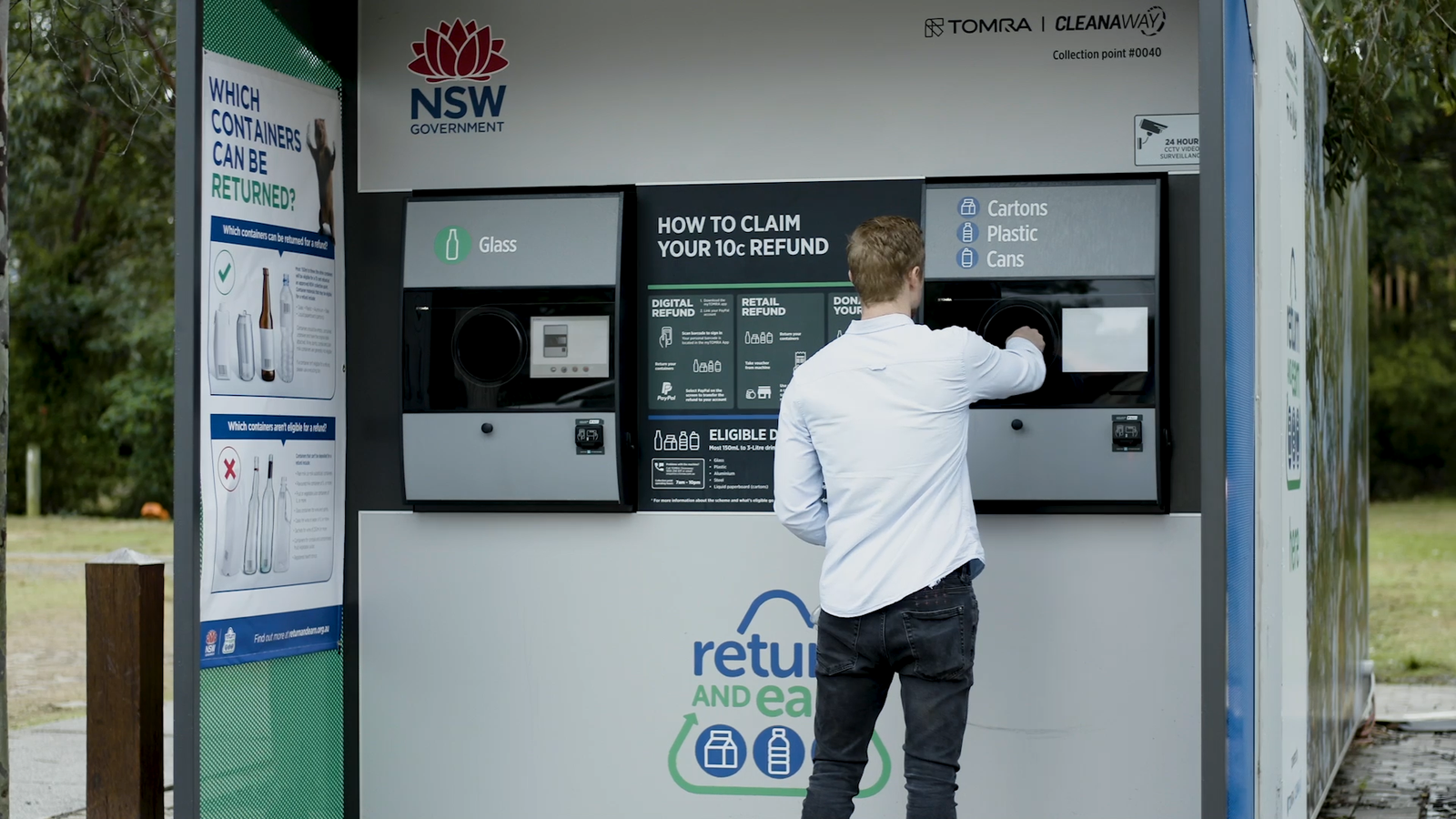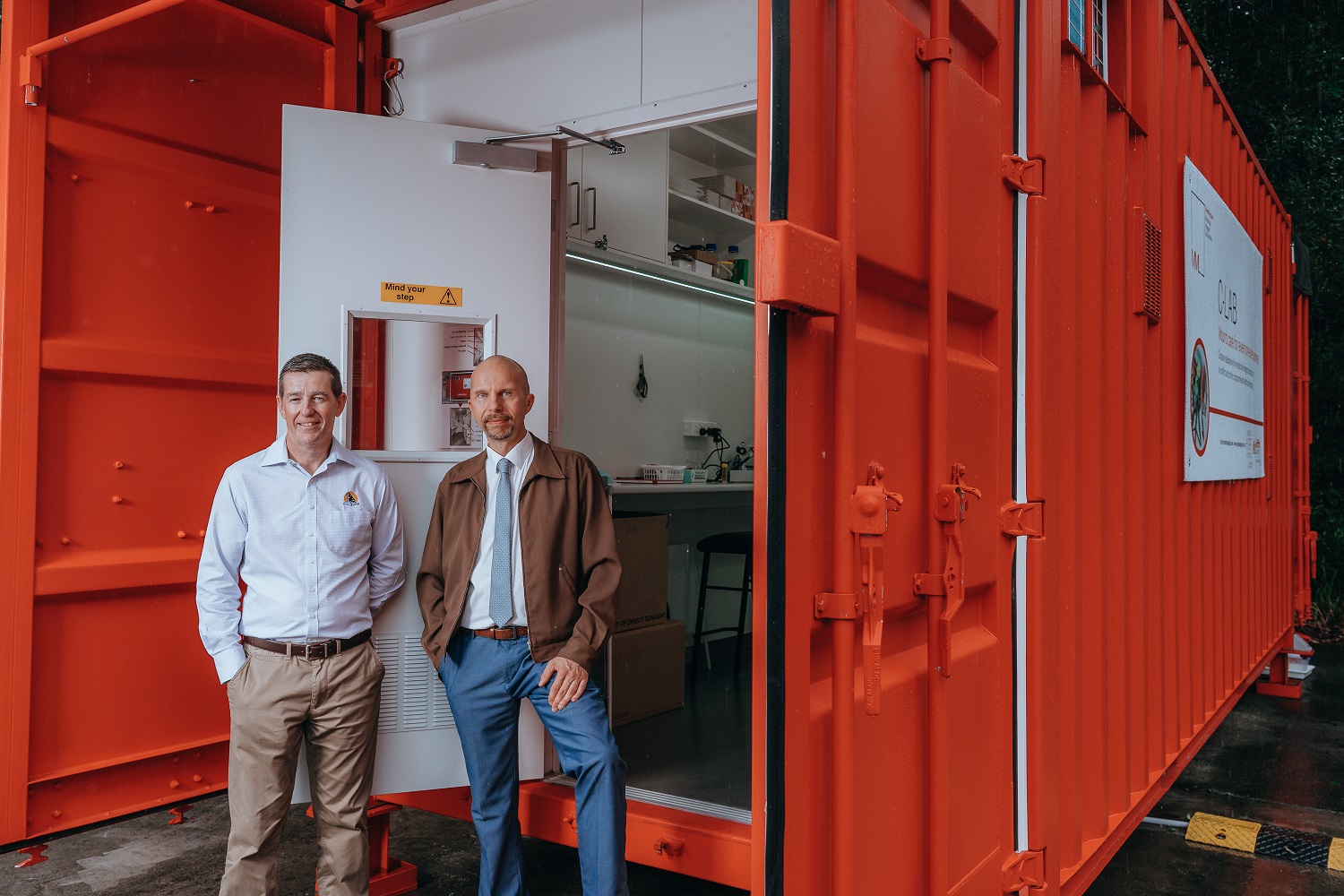
Anything but your average shipping container, this solution has the potential to save lives.
Think all shipping containers are the same? Think again. This container has the potential to save lives, in one of the most unexpected ways: through the production and application of medicinal maggots.
Dr Frank Stadler, Research Fellow and Team Leader at MedMagLabs at Griffith University’s School of Medicine, approached Royal Wolf to bring to life an idea that would make a real difference.
“We had a problem: isolated communities in conflict situations or in poverty do not have access to healthcare,” says Dr Stadler. “The problem with disasters and with conflict wound care is that you have the propensity for high casualty rates and large volumes of injured people, and the healthcare system becoming overwhelmed.”
The obvious solution, he decided, was maggot therapy. When executed correctly, maggot therapy works to remove dead tissue, control infection and promote healing. But it requires a movable laboratory.
“We need to have solutions that bring the point of care close to the production [of medicinal maggots]. Having a shipping container, which is very mobile, converted into a laboratory makes sense,” says Dr Stadler.
“Frank approached us about building a containerised lab when he and his team were putting a proposal together to get some funding for the project. He had a budget in mind, but he also had a list of what he needed in the container. Our challenge was to try and fit them all in and come in on budget,” says Warner Anderson, Royal Wolf’s Business Development Executive, Modifications.
With the briefing complete, the construction of the container laboratory, or C-Lab, commenced.
“The C-Lab is, in essence, a converted shipping container. We have one part of the shipping container turned into an insectary to breed the flies and the other part converted into a laboratory that meets required standards and provides clean-room facilities, so that we can produce very effective and high-quality medicinal maggots in the field anywhere we can put it,” says Dr Stadler.
“Having a mobile laboratory is essential because you can shift it very easily and move it to the point of care where the need arises.”
As you would expect, the requirements for the C-Lab were carefully considered, with nothing left to chance.
“The container is elevated, and we have to do that in order to keep the ants out. This is one important feature because otherwise the fly colonies would very easily be prey to ants overnight,” says Dr Stadler.
“The other important feature is that the insectary and the laboratory have independent air-conditioning systems and do not exchange air with each other. That’s in order to maintain hygiene in the laboratory. A good medicinal maggot laboratory has a certain workflow where you do not co-locate in a single room the production of the medicinal maggots and the rearing of the flies themselves. You have to separate that out in order not to have contamination, and we’ve achieved that by having two separate entrances.”
Dr Stadler is optimistic about maggot therapy and the difference it can make in the future.
“There’s great potential for maggot therapy. We hope that this can revolutionise disaster and conflict wound care,” he says.
“The ability to quickly move the laboratory to a point of care and a point of need, that is the critical way to ensure quality. We know it works, and can be sure that the medicinal maggots we produce are of high quality, straightaway.”
_________________________________________________________________________________
The development and construction of the mobile container laboratory was made possible with a CA$250,000 grant to conduct maggot therapy supply chain research from Creating Hope in Conflict: A Humanitarian Grand Challenge, a partnership of the U.S. Agency for International Development (USAID), the U.K. Foreign, Commonwealth & Development Office (FCDO), and the Ministry of Foreign Affairs of the Netherlands, with support from Grand Challenges Canada.

